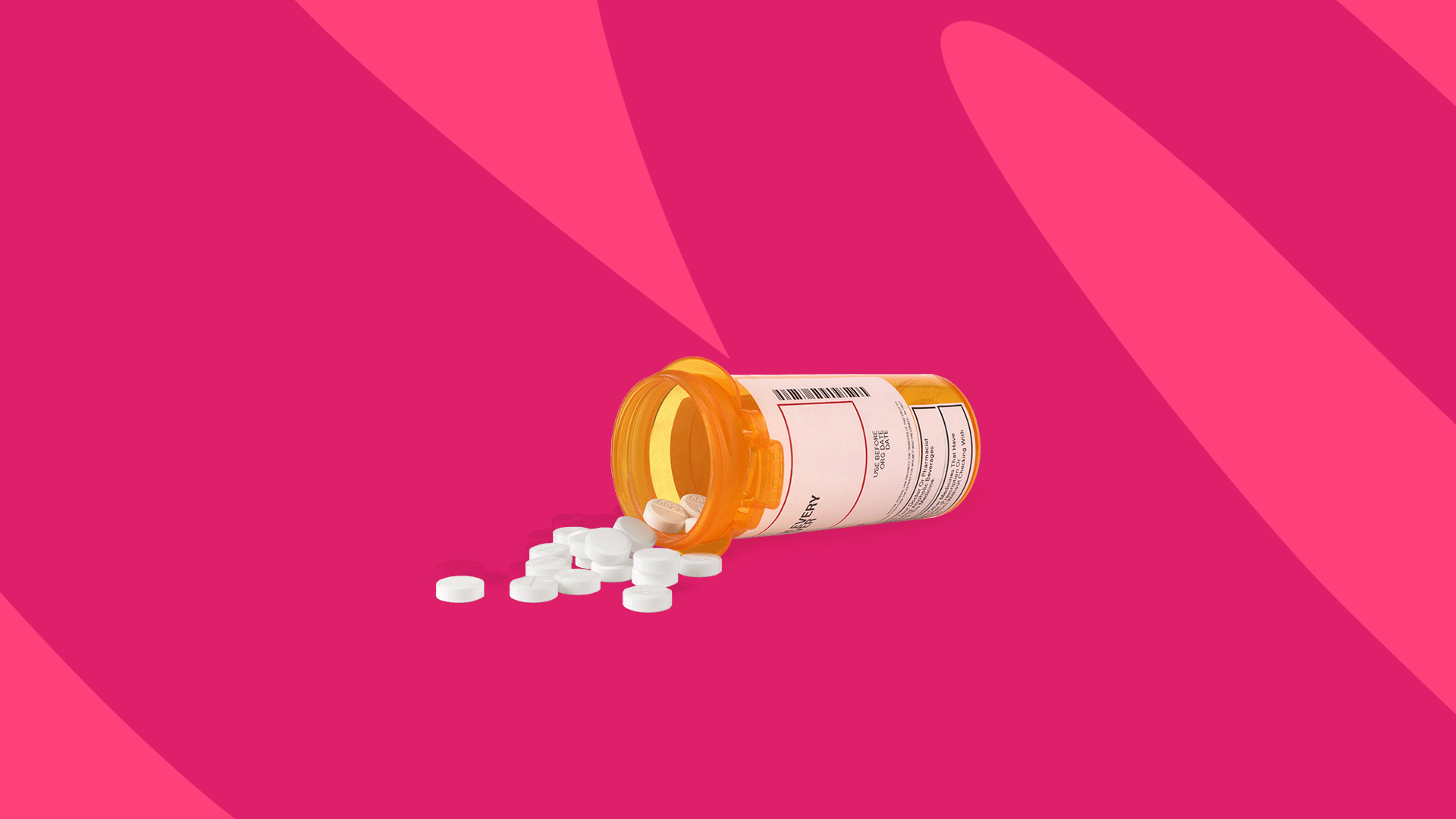Health
7 benefits of Macadamia Nuts

Discover the 7 benefits of Macadamia Nuts.
While almonds may be America’s most popular nut, no one can deny the delicious lure of macadamia nut health benefits; this is a good thing because just like almond nutrition, macadamia nutrition has a powerful effect.
Macadamia nuts are incredible nutrient-packed powerhouses that come from the macadamia tree.
They contain some important essential vitamins and minerals, including vitamin A, iron, B vitamins, manganese, and folate, as well as protein, healthy fats, and antioxidants.
These remarkable nutrients are what give these amazing nuts their bountiful benefits – what benefits? I’m glad you asked.
Benefits of Macadamia Nuts
1.- Good for the heart
Macadamia nuts contain healthy fats that can help keep your arteries in good heart-healthy condition.
Because they are rich in monounsaturated fatty acids, they help lower cholesterol levels and reduce triglycerides, a type of body fat. When we reduce body fat, we can reduce the risk of coronary heart disease.
In a study conducted by the Pennsylvania State University Department of Nutritional Sciences, some subjects were randomly given macadamia nuts and compared to those who were fed a standard American diet.
Throughout the study, those who ate macadamia nuts saw reduced cholesterol levels and healthier heart markers overall, because macadamia nuts are a rich source of monounsaturated fatty acids, they help reduce the risks of risk factors of lipid/lipoprotein cardiovascular diseases.
2.- Fight the disease
Macadamia Nut Benefits Contains flavonoids that help prevent cell damage by protecting cells from environmental toxins; Once these phenomenal flavonoids are in the body, they turn into antioxidants, which is where the energy comes in; Antioxidants have this great job of finding free radicals in our bodies and destroying them, which is how we protect our bodies from disease.
Observations from the Antioxidant Research Laboratory study at the USDA Human Nutrition Research Center suggest that nut consumption is inversely related to the incidence of cardiovascular disease and cancer.
In addition to being nutrient-dense, the numerous phytonutrients contain positive health benefits.
Phenolic acids, flavonoids, and stilbenes help provide helpful antioxidants that can fight diseases like cancer; That’s why nuts, including macadamia, are some of the best cancer-fighting foods you can eat.
3.- Help in weight loss
The good fat content in macadamia nuts can help curb your appetite, not only, but macadamias contain palmitoleic acid; palmitoleic acid can increase fat metabolism, which in turn reduces fat storage.
Macadamia nuts contain a good balance of nutrients and fats, helping you feel satisfied with just a few of them.
Additionally, macadamia nuts contain beneficial dietary fibers that can help you achieve satiety and contain complex carbohydrates such as lignans, hemicellulose, amylopectin, mucilage, gums, and insoluble cellulose that help with digestive issues and reduce pesky hunger pangs.
There is even evidence that nuts like macadamia nuts may have positive effects on the prevention of metabolic syndrome, although more research is needed to validate this belief.
4.- Supports the intestine
Containing soluble and insoluble dietary fiber, macadamia nuts help you feel full while removing toxins from the body and aiding in good digestion.
As a food rich in copper, the macadamia nut helps with the efficient utilization of iron and supports the correct enzymatic reactions.
5.- Strengthens the bones
Macadamia nuts are abundant in phosphorus, manganese, and magnesium, all of which aid in the mineralization of bones and teeth and the transport and absorption of nutrients.
We know that calcium aids in the formation of teeth and bones, while manganese helps the body lay down new bone tissue when needed so that bones stay strong as we age.
Another important fact is that kidney disease affects the body’s ability to absorb calcium and manganese, which can lead to bone disease.
The manganese found in macadamia nuts can help keep your bones strong and fight kidney disease at the same time.
6.- Keeps the brain and nervous system on point
The copper, vitamin B1, magnesium, and manganese found in macadamia nuts help generate healthy neurotransmitters, which are the important chemicals that brain cells need to send signals to the brain.
Macadamia nuts are also high in oleic acid, which supports brain health, and contain palmitoleic acid, which helps protect nerve cells in the brain, thus contributing to healthy brain function.
Also, the macadamia contains omega-9, and as we know, omega-9 benefits the brain in many ways, for starters, it can help improve mood, an obvious function of the brain, plus it can help improve memory and avoid neurological diseases, for example, memory performance in normal naïve mice was evaluated in a study showing that erucic acid may be a therapeutic agent for diseases associated with cognitive deficits, such as Alzheimer’s disease.
This means that you can add improved memory and cognitive function to the list of omega-9 benefits and the benefits of macadamia nuts.
7.-Reduces chronic inflammation and arthritis symptoms
Omega -6 fatty acids may provide some nutritional benefits, but most people consume too much; when we have too many omega-6 fatty acids it can cause an increase in chronic inflammation in the body, that’s problematic because we know that inflammation is at the root of most diseases, like arthritis, cancer, heart disease, diabetes and more.
One study attempted to test the ability of a panel of Australian plants, including macadamia, with a history of treating rheumatoid arthritis, and concluded that it was beneficial.
The researchers noted that the “low toxicity of these extracts and their inhibitory bioactivity against Proteus spp indicate their potential to block the onset of rheumatoid arthritis.” That means macadamia nuts are a good addition to any arthritis diet treatment plan.
Most nuts have more omega-6 than omega-3 forms, but macadamia nuts are lower in omega-6; That doesn’t mean you should go overboard.
But by watching your intake of omega-6 fatty acids and having a few macadamia nuts each week, you can add protein, fiber, vitamins, and minerals to your diet without adding too much inflammation, causing omega-6s to give you an idea of the differences, pecans contain 3.7 grams of omega-6 per 100 grams, almonds 3.4 grams and cashews 2.2 grams compared to macadamia which comes in at 0.36 grams.
Nutritional rate of Macadamia nuts
While the macadamia nut may be higher in fat and contain more calories, it is lower in omega-6, as noted above, than other nuts; it also contains an impressive amount of nutrients, most notably an incredible 58 percent of the recommended daily value of manganese in a small serving.
One ounce of raw macadamia nuts contains approximately:
• 203 calories
• 4 grams of carbohydrates
• 2.2 grams of protein
• 21.4 grams of fat
• 2.4 grams of fiber
• 1.2 milligrams of manganese (58 percent DV)
• 0.3 milligrams of thiamin (23 percent DV)
• 0.2 milligrams of copper (11 percent DV)
• 36.7 milligrams of magnesium (9 percent DV)
• 1 milligram of iron (6 percent DV)
• 53.1 milligrams of phosphorus (5 percent DV)
• 0.1 milligrams of vitamin B6 (4 percent DV)
Origin and History of Macadamia Nuts
• Macadamias are contained with a hard seed coat that is encased in a green shell; then splits open when the nut ripens, while the macadamia is probably better known as hailing from Hawaii, did you know two seedlings were planted in the 19th century on the University of California Berkeley campus that still stand today? It is true! However, macadamia is native to Australia.
• The macadamia nut has a creamy white kernel made up of 65 percent to 75 percent oil and 6 percent to 8 percent sugar, when roasted it becomes more consistent in both color and texture. some seed coats are smooth, and some are rougher and pebbled; at the same time, some are more suitable for the home garden, while others are more suitable for commercial production.
• You may have heard of macadamia also called Mauna loa. Mauna Loa is the largest volcano on earth located in Hawaii, and Mauna Loa, now a brand name, became one of the first macadamia plantations to be developed in Hawaii.
• In addition to being called macadamia nuts, these nuts are also commonly known as the Australian walnut and the Queensland walnut; many species are poisonous; however, there are two edible species; one is the smooth-shelled macadamia or macadamia integrifolia, and the other is the hard-shelled macadamia or M. tetraphylla.
• Growing near streams and riverbanks in tropical rainforests, macadamia integrifolia is native to southeastern Queensland, while tetraphylla is native to southeastern Queensland and northeastern New South Wales. At the point where the two species meet, some types appear to be natural hybrids.
• This nut arrived in Hawaii around 1881, used primarily as an ornament and for reforestation. In 1948, the Hawaiian Agricultural Experiment Station named and introduced several promising selections, leading to the modern macadamia industry for which Hawaii is famous.
Hawaii brought the macadamia tree to California in the mid-20th century. Australia, South Africa, and Central America also depend on the value of macadamia. Macadamias prefer a temperate, frost-free climate with plenty of rain, similar to the way coffee beans grow best.
How to store and roast macadamia nuts?
Be sure to store your macadamias in a cool place, like the refrigerator or cupboard. However, it is important to ensure that they do not contain moisture to maintain the benefits of macadamia nuts.
If you prefer them toasted, here’s what to do:
• Preheat your oven to 225-250 degrees F.
• Arrange the nut meats (the actual edible part of the nuts, not the shells) on a cookie sheet. It’s best to roast similar-sized pieces for consistency.
• Simply toast for about 10 minutes, keeping an eye on them as oven temperatures can fluctuate.
• Remove from oven as soon as they start to turn slightly brown.
• Allow them to cool down.
• Store in a tightly closed container.
Precautions
• Macadamia nuts are certainly a delicious and healthy choice, but keep portions in mind. Keep an eye on the ingredients when you buy them, as many nuts have been covered in preservatives, oils, and tons of salt. They are also rich in phosphorous, which is important for anyone who may be dealing with kidney problems.
• Also, be aware of common nut allergies. If you have a nut allergy, you should avoid macadamias.
Final Thoughts on the Benefits of Macadamia Nuts
• Macadamia nuts contain some important essential vitamins and minerals, including vitamin A, iron, B vitamins, manganese, and folic acid, as well as protein, healthy fats, and antioxidants.
• These nuts are good for the heart, fight disease as antioxidant-rich foods, aid in weight loss, support gut health, strengthen bones, keep the brain and nervous system sharp, reduce chronic inflammation, and treat arthritis.
• Be sure to store your macadamias in a cool place, like the refrigerator or cupboard. However, it’s important to make sure they don’t contain any moisture, you can also grill your own.
Health
Benefits of bay leaves and side effects

Table of Contents
Health
Serious side effects of metoprolol

- Discover the serious side effects of metoprolol.
- How does this medication work? What are its effects?
- Metoprolol belongs to the class of medications called beta-blockers. Metoprolol is used to treat high blood pressure and prevent symptoms of certain types of angina ( chest pain). It is also used to reduce the risk of death immediately after a heart attack. It works by reducing the needs of the heart during exercise.
- People who have had a heart attack take metoprolol to avoid having another heart attack. Metoprolol is often used in combination with other drugs that lower high blood pressure, such as diuretics (pills that increase urine output), when just one agent is not enough to control blood pressure.
- This medicine is available under various brand names or in different formulations, or both. A specific brand of this medication may not be available in all forms and may not have been approved for all of the conditions discussed here. Also, some forms of this medicine may not be used for all of the conditions mentioned in this article.
- Your doctor may have suggested this medication for a condition that is not listed in this Medication Information article. If you have not yet discussed this with your doctor, or if you are not sure why you are taking this medicine, consult your doctor. Do not stop taking this medicine without consulting your doctor first.
- Do not give this medicine to anyone, even someone who has the same symptoms as yours. This medicine could harm people for whom it was not prescribed.
- What forms does this medication come in?
- Apo-Metoprolol
- 25 mg
- Each white, oval, scored tablet, engraved “ME” over “25” on one side and “APO” on the other, contains 25 mg of metoprolol tartrate. Nonmedicinal ingredients: colloidal silica dioxide, croscarmellose sodium, lactose monohydrate, magnesium stearate, and microcrystalline cellulose.
- 50 mg
- Each white, round, scored tablet, engraved “APO” over “M50”, contains 50 mg of metoprolol tartrate. Nonmedicinal ingredients: colloidal silica dioxide, croscarmellose sodium, lactose, magnesium stearate, and microcrystalline cellulose.
- 100 mg
- Each white, round, scored tablet, debossed with “APO” over “M100”, contains 100 mg of metoprolol tartrate. Nonmedicinal ingredients: colloidal silica dioxide, croscarmellose sodium, lactose, magnesium stearate, and microcrystalline cellulose.
- Apo-Metoprolol (Type L)
- 50 mg
- Each pink, capsule-shaped, coated tablet, scored on one side and engraved “50” on the other, contains 50 mg of metoprolol. Nonmedicinal ingredients: carnauba wax, colloidal silica dioxide, croscarmellose sodium, D&C aluminum lake red No. 30, sun yellow aluminum lake, hydroxypropyl methylcellulose, lactose, magnesium stearate, microcrystalline cellulose, polyethylene glycol 3350, and sodium dioxide. titanium.
- 100 mg
- Each blue, capsule-shaped, coated tablet, scored on one side and engraved “100” on the other, contains 100 mg of metoprolol. Nonmedicinal ingredients: carnauba wax, colloidal silica dioxide, croscarmellose sodium, hydroxypropylmethylcellulose, indigotin aluminum lake (AD & C blue # 2), lactose, magnesium stearate, microcrystalline cellulose, polydextrose, polyethylene glycol 3350, and titanium dioxide.
- How should this medication be used?
- The usual maintenance dose of metoprolol ranges from 100 mg to 200 mg per day, however, this dose may be increased to 400 mg per day as needed to achieve symptom control. Immediate-release tablets are taken in 2 divided doses while slow-release tablets are taken once a day.
- This medication should be taken soon after a meal, but try to take it at the same time every day.
- Several factors can be taken into account in determining the dose a person needs: their weight, their health, and whether they are taking other medications. If your doctor has recommended a dose other than those listed here, do not change the way you are taking the medicine without consulting your doctor.
- This medicine must be taken exactly as your doctor has told you. If you miss a dose, take the medicine as soon as you notice the missed dose and resume treatment as soon as possible. If it is almost time for your next dose, skip the missed dose and go back to your usual dosing schedule. Do not use a double dose to make up for a missed dose. If you are unsure of what to do after missing a dose, ask your doctor or pharmacist for advice.
- Store this medication at room temperature, protect it from light and moisture, and keep it out of the reach of children.
- Do not dispose of medicines in the wastewater (eg not in the sink or in the toilet bowl) or with the household garbage. Ask your pharmacist how to dispose of unused or expired medicines.
- In which cases is this medication not recommended?
- Do not use this medicine under the following circumstances:
- a condition such as right ventricular failure caused by high blood pressure in the lungs;
- is allergic to metoprolol or any of the ingredients of the medication
- are allergic to other beta-blockers;
- anesthesia caused by an agent having a depressant effect on the myocardium (eg ether);
- a history of heart attack accompanied by:
- a heart rate of fewer than 45 beats per minute,
- severe heart block
- very low blood pressure
- moderate or severe heart failure.
- slow heartbeat caused by problems with the heart rhythm;
- severe heart block;
- cardiogenic shock;
- significant circulatory disorders;
- proven heart failure;
- the presence of asthma or other obstructive airway conditions (only when it comes to metoprolol in intravenous form);
- a disorder referred to as “sinus dysfunction syndrome”;
- have untreated pheochromocytoma (a tumor of the adrenal glands).
- What are the possible side effects of metoprolol
- Many medications can cause side effects. A side effect is an unwanted response to a drug when taken in normal doses. It can be mild or severe, temporary or permanent. The side effects listed below are not experienced by everyone who takes this medication. If you are concerned about side effects, discuss the risks and benefits of this medication with your doctor.
- At least 1% of people taking this medicine reported the following side effects. Many of these side effects can be managed and a few may go away on their own over time.
- Consult your doctor if you experience these side effects and if they are serious or bothersome. Your pharmacist may be able to give you advice on what to do if these side effects appear:
- changes in libido or sexual ability;
- constipation;
- diarrhea;
- pain or discomfort in the abdomen;
- dizziness or light-headedness when changing from sitting or lying down to standin
- fatigue or unusual weakness brought on by activity;
- fatigue;
- headaches;
- nausea;
- hair loss;
- weight gain;
- dreams giving a powerful sensation;
- dry mouth;
- increased sensitivity of the skin to solar radiation;
- increased sweating;
- sleep disturbances;
- vomitings.
- Most of the side effects listed below do not happen very often, but they could cause serious problems if you do not see your doctor or receive medical attention.
- Check with your doctor as soon as possible if any of the following side effects occur:
- slow heartbeat (especially less than 40 beats per minute);
- hearing changes;
- confusion;
- difficulty breathing or wheezing;
- back or joint pain;
- chest pain;
- hallucinations (the perception of phenomena that do not exist);
- tingling in the arms and legs.
- a feeling of coldness in the hands and feet;
- signs of depression (eg, lack of concentration, weight fluctuations, trouble sleeping, indifference to many activities, thoughts of suicide);
- signs of certain heart problems (e.g., increased or irregular heartbeat or pulse, chest pain, difficulty breathing, excessive fatigue, swelling of the feet, ankles, or part lower legs);
- signs of certain kidney problems (eg increased or reduced urine production, itching, nausea, vomiting, rash);
- signs of a bleeding disorder (e.g. unusual nosebleeds, bruising, blood in urine, cough with bloody sputum, bleeding gums, cuts that keep bleeding) ;
- signs of liver problems (eg, nausea, vomiting, diarrhea, loss of appetite, weight loss, yellowing of the skin or whites of the eyes, dark urine, pale stools );
- a flare-up of psoriasis (eg, red spots the size of a pinhead on the skin; red, scaly, or crusty skin);
- a feeling of numbness or tingling in the extremities;
- symptoms of low blood pressure (eg, dizziness, fatigue);
- vision changes (eg blurred vision, dry eye, eye pain).
- Stop taking the drug and seek immediate medical attention if there is a response such as :
- coldness, discoloration, or pain in the fingers or toes;
- symptoms of a serious allergic reaction (such as swelling of the face or swelling of the throat, hives, or difficulty breathing).
- Some people may experience side effects other than those listed. See your doctor if you notice any symptom that worries you while you are using this medicine.
- Are there other precautions or warnings?
- Before using any medication, be sure to tell your doctor about any medical conditions or allergies you may have, the medications you are using, and any other important facts about your health. Women should mention if they are pregnant or breastfeeding. These factors could influence how you should use this medicine.
- Respiratory disorders: In general, people with asthma, and certain other lung problems, should generally avoid taking beta-blockers such as metoprolol, as they can cause breathing difficulties. If you have breathing problems, and your doctor has prescribed metoprolol for you, it is probably in lower doses, and they will monitor you regularly while you are using this medicine. If you have breathing problems, talk to your doctor about how this medicine may affect your condition, how your condition affects the administration and effectiveness of this medicine, and whether medical supervision is needed. specific.
- Severe allergies: If you have allergies severe enough to cause anaphylaxis (a severe allergic reaction in which swelling of the face, lips, and throat makes it very difficult to breathe), talk to your doctor about what to do next. take if you have an allergic reaction. the use of metoprolol may make it more difficult to treat severe allergic reactions with epinephrine.
- Stopping the drug: People with heart disease who suddenly stop taking this drug may experience chest pain, irregular heartbeat, or a heart attack. If you have heart disease, do not stop taking this medication without consulting your doctor first. When this medication is to be stopped, it should be done gradually, under the supervision of your doctor.
- Diabetes: The signs associated with low blood sugar may be more difficult to see while you are taking metoprolol. People with diabetes may have a harder time regulating their blood sugar levels when taking this medicine. If you have diabetes, discuss with your doctor how this medication may affect your condition, how your condition affects the administration and effectiveness of this medicine, and whether medical supervision is needed. specific. You will be kept under medical supervision while taking this medicine and your doctor may need to adjust your doses of diabetes medicine.
- Dizziness or syncope: Metoprolol may cause side effects, including dizziness or fainting, soon after starting treatment. Do not drive a vehicle or do other potentially dangerous tasks until you know how this medicine works for you.
- Hyperthyroidism (high level of thyroid hormones): Metoprolol may mask the symptoms of a person with hyperthyroidism (high level of thyroid hormones).
- If you have hyperthyroidism, discuss with your doctor how this medication may affect your condition, how your condition affects the administration and effectiveness of this medicine, and whether it is appropriate to have it. specific medical surveillance. Stopping the medication suddenly could make this condition worse.
- Liver function: Liver disease or reduced liver function can cause this drug to build up in the body, causing side effects. If you have liver problems, talk to your doctor about how this medicine may affect your condition, how your condition affects the administration and effectiveness of this medicine, and whether medical supervision is needed. specific. Your doctor will monitor your liver function with regular blood tests while you are taking this medicine.
- If you notice symptoms of liver problems such as fatigue, feeling unwell, loss of appetite, nausea, yellowing of the skin or whites of the eyes, dark urine, pale stools, abdominal pain, or swelling and itching of the skin, contact your doctor immediately.
- Kidney function: Taking metoprolol may affect kidney function. Your doctor will take this into account in his monitoring and will adjust your dose as needed. If you have reduced kidney function or kidney disease, talk to your doctor about how this medicine may affect your condition, how your condition affects the administration, and how well this medicine works. , and the relevance of specific medical surveillance. If you notice swelling in your hands, feet, or face, an increase in your blood pressure, unusual muscle cramps, or a dark appearance of your urine, this medicine may be interfering with the proper function of your blood. kidneys.
- If you notice any of these symptoms, contact your doctor as soon as possible.
- Heart disease: Beta-blockers like metoprolol can worsen already present heart failure. It is essential to use metoprolol as prescribed by your doctor to reduce this risk. If you have a history of heart disease, discuss with your doctor how this medication may affect your condition, how your condition affects the administration and effectiveness of this medicine, and whether it is appropriate to use it. specific medical surveillance.
- Pheochromocytoma: This medicine may worsen the symptoms of pheochromocytoma (a tumor of the adrenal gland) if taken alone Talk to your doctor about how this medicine might affect your condition, how your condition affects your condition. administration and efficacy of this medicinal product, and the relevance of specific medical supervision.
- Surgery: If you are about to have surgery, tell all healthcare professionals who treat you that you are using metoprolol.
- Pregnancy: This medication should not be used during pregnancy unless the benefits outweigh the risks. If pregnancy occurs while you are using this medicine, contact your doctor immediately.
- Breast-feeding: This medicine passes into breast milk. If you use metoprolol while you are breastfeeding your baby may feel the effects. Check with your doctor to see if you should continue breastfeeding.
- Children: The safety and effectiveness of this medicine have not been established in children
- Seniors: Normal doses of metoprolol for adults may lower blood pressure more than expected. Lower doses may be necessary for the elderly.
- Can other agents interact with this medication?
- There may be an interaction between metoprolol and any of the following:
- abiraterone acetate;
- acetylcholine;
- anesthetic agents;
- alpha agonists (eg, clonidine, methyldopa);
- alcohol;
- aldesleukin;
- aliskiren;
- alpha1-blockers (eg doxazosin, prazosin, tamsulosin);
- amifostine;
- amiodarone;
- amphetamines (eg, dextroamphetamine, lisdexamfetamine);
- serotonin antagonists (antiemetic drugs; eg dolasetron, granisetron, ondansetron);
- tricyclic antidepressants (eg amitriptyline, clomipramine, desipramine, trimipramine);
- antihistamines (eg, cetirizine, doxylamine, diphenhydramine, hydroxyzine, loratadine, diphenhydramine);
- nonsteroidal anti-inflammatory drugs (NSAIDs) eg. ibuprofen, indomethacin, naproxen);
- antimalarials (e.g. chloroquine, hydroxychloroquine, mefloquine, quinine);
- antipsychotics (eg, chlorpromazine, clozapine, haloperidol, olanzapine, quetiapine, risperidone);
- asunaprevir;
- atomoxetine;
- other beta-blockers (eg, atenolol, pindolol, propranolol);
- azelastine;
- barbiturates (eg, butalbital, pentobarbital, phenobarbital);
- beta-agonists (anti-asthma medicines, eg salbutamol, salmeterol, formoterol);
- calcium channel blockers (eg, verapamil, diltiazem, nifedipine, amlodipine);
- angiotensin II receptor blockers (ARBs) eg. irbesartan, losartan);
- bortezomib;
- brimonidine;
- buprenorphine;
- bupropion;
- celecoxib;
- ceritinib;
- milk thistle;
- cholecalciferol;
- cimetidine;
- cinacalcet;
- clobazam;
- clotrimazole;
- cobicistat;
- cocaine;
- cyproterone;
- darifenacin;
- delavirdine;
- rye ergot derivatives (eg bromocriptine, ergotamine, methylergonovine);
- nitro derivatives (eg nitroglycerin, isosorbide dinitrate, isosorbide mononitrate);
- dextromethorphan;
- digoxin;
- dipyridamole;
- disopyramide;
- disulfiram;
- diuretics (pills to remove water; eg furosemide, hydrochlorothiazide);
- donepezil;
- doxorubicin;
- dronedarone;
- entacapone;
- epinephrine;
- grass pollen allergen extract;
- fentanyl;
- fingolimod;
- flecainide;
- floctafenine;
- galantamine;
- ginger;
- ginseng;
- guanfacine;
- imatinib;
- phosphodiesterase type 5 inhibitors (eg, sildenafil, tadalafil);
- proton pump inhibitors (eg, lansoprazole, omeprazole, rabeprazole);
- Angiotensin-Converting Enzyme Inhibitors (ACEIs) eg. captopril, ramipril);
- selective serotonin reuptake inhibitors (eg fluoxetine, paroxetine, sertraline);
- selective serotonin-norepinephrine reuptake inhibitors or SNRIs (eg, desvenlafaxine, duloxetine, venlafaxine);
- insulin;
- isoniazid;
- ketoconazole;
- lacosamide;
- lanreotide;
- levodopa;
- lidocaine;
- lomustine;
- cholesterol “statin” drugs (eg pravastatin, simvastatin);
- methacholine;
- methadone;
- methimazole;
- methoxsalen;
- methylphenidate;
- metoclopramide;
- midodrine;
- mifepristone;
- mirabegron;
- moclobemide;
- nefazodone;
- nevirapine;
- nilotinib;
- noradrenaline;
- octreotide;
- orphenadrine;
- oxybutynin;
- pasireotide;
- pazopanib;
- peginterferon alfa-2b;
- pentoxifylline;
- sodium phenylbutyrate;
- pilocarpine;
- pimozide;
- praziquantel;
- propafenone;
- quinidine;
- quinine;
- ranitidine;
- regorafenib;
- rifabutin;
- rifampin;
- rituximab;
- rivastigmine;
- ropinirole;
- sulfonylureas (eg gliclazide, glyburide, tolbutamide);
- temsirolimus;
- terbinafine;
- theophyllines (eg aminophylline, oxtriphylline, theophylline);
- ticagrelor;
- ticlopidine;
- tizanidine;
- tofacitinib;
- tolcapone;
- tranylcypromine;
- yohimbine.
- If you are taking any of the above medicines, please tell your doctor or pharmacist. In your case, your doctor may ask you to:
- stop taking any of the medications;
- replace one of the drugs with another;
- change the way you take one or both of the medicines.
- do not change anything at all.
- Interference of one medicine with another does not always mean that you stop taking one of them. Ask your doctor what to do with drug interactions.
- Drugs other than those listed above may interact with this drug. Tell your doctor everything you take, whether it is prescription or over-the-counter drugs and herbal remedies. Do not forget to mention any supplements you take. If you consume caffeine, alcohol, nicotine, or street drugs, you should tell your prescribing doctor since these substances can affect the way many drugs work
Health
Side effects of too much cinnamon

Table of Contents
-

 Food1 year ago
Food1 year ago10 + Benefits of carrot juice and side effects
-

 Health1 year ago
Health1 year ago50 Super Healthy (And Very Often Cheap) Foods
-

 Benefits3 months ago
Benefits3 months agoThe Benefits of Joining Gym Lumolog – Improve Your Fitness & Health
-

 Health1 year ago
Health1 year ago5 Shocking health benefits of kinkeliba and side effects
-

 Food1 year ago
Food1 year ago8 shocking benefits of leek juice and side effects
-

 Health1 year ago
Health1 year agoBenefits of guava leaves Sensually
-

 Weight Loss1 year ago
Weight Loss1 year agoChaz Bono weight loss secret
-

 Health1 year ago
Health1 year ago13 shocking health benefits of Thai eggplant












